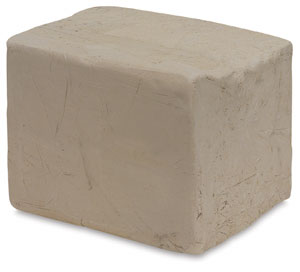Making pottery is just like baking a cake but more complex!
I can tell you one thing about pottery that is in-disputable. It is diverse and more complex than you could ever imagine. Think of it as being like baking a cake. There are literally thousands of different recipes and baking instructions, including the one your grannie used to make! Many of the cake recipes make great cakes but they are all slightly different.
Clay bodies and glazes are just the same but even more complicated! This is what many potters find fascinating. They can develop their own clay body, glaze and process in a way that makes them special and their pottery products unique. Please remember that!
However for the novice all this complexity creates confusion. Listening to more experienced potters providing a snippet of knowledge is not always good for you. Beginners try to relate it to their needs and often it results in failure.
So here is what the beginner really needs to know and not forget.
Start with a pottery class
Start with a pottery class. Here you can learn the basics with the support of a tutor. You can meet new friends and even take comfort in that you are not alone in your struggles to learn a new skill! A good tutor will not only guide you but provide material recommendations to allow you to reach the next stage of working alone.
Choose a Quality Clay and Glaze supplier
 |
| Clay Body |
Tell them what you want to make and how. For example. "I want to make pottery by using a potters wheel. I want to glaze it with a white glaze by dipping and I have a pottery kiln that has a maximum temperature of 1250C. "
They can then provide a clay and glaze that are compatible which when processed correctly will give you the best possibility of success.
Process the clay and glaze as recommended by the supplier
 |
| Orton Cones |
Once you are happy with the finished result repeat it several times. This proves the process you have used will work consistently as well as giving you confidence in your skills.
Make a note of the clay body, the glaze, the firing schedules and take a photo of the fired appearance. In this way you will always have a record of how to reproduce your great work of art!
Only once skilled add your own artistic flair
Making pottery is a combination of art and science. The art to design something unique and the science to make it into a product. Only when you have the basic pottery skills and can repeatedly create the same basic product should you become focused on artistic flair.
Developing your own style and delight in making something unique
| Lori Duncan Raku |
However they develop this over many years of making and studying pottery.
So do not rush to specialise too early. What all master potters have in common is a strong basic knowledge of clay, glaze and firing.
Keep on learning and enjoy
Pottery making is meant to be enjoyable so make sure this happens. One way to do this is to continue to learn new things. In pottery making this is relatively easy as the subject is so diverse and changing that you never become a master of all.
Once adept at basic skills look at all elements of what you do not just the making technique. Using materials such as colour creatively can open a whole new spectrum of ware. For example if you only made plain glossy white, look at making some coloured glazed pieces.
One way to do this successfully is to enrol on a pottery course specialising on one type of technique. For example studio potters often run courses to help others develop their knowledge of raku or wood firing or sculpting etc. For more information see my list of pottery courses/classes available in the UK
Above all enjoy!
Good Luck
Happy Potting
The Potters Friend
Once adept at basic skills look at all elements of what you do not just the making technique. Using materials such as colour creatively can open a whole new spectrum of ware. For example if you only made plain glossy white, look at making some coloured glazed pieces.
One way to do this successfully is to enrol on a pottery course specialising on one type of technique. For example studio potters often run courses to help others develop their knowledge of raku or wood firing or sculpting etc. For more information see my list of pottery courses/classes available in the UK
Above all enjoy!
Good Luck
Happy Potting
The Potters Friend
